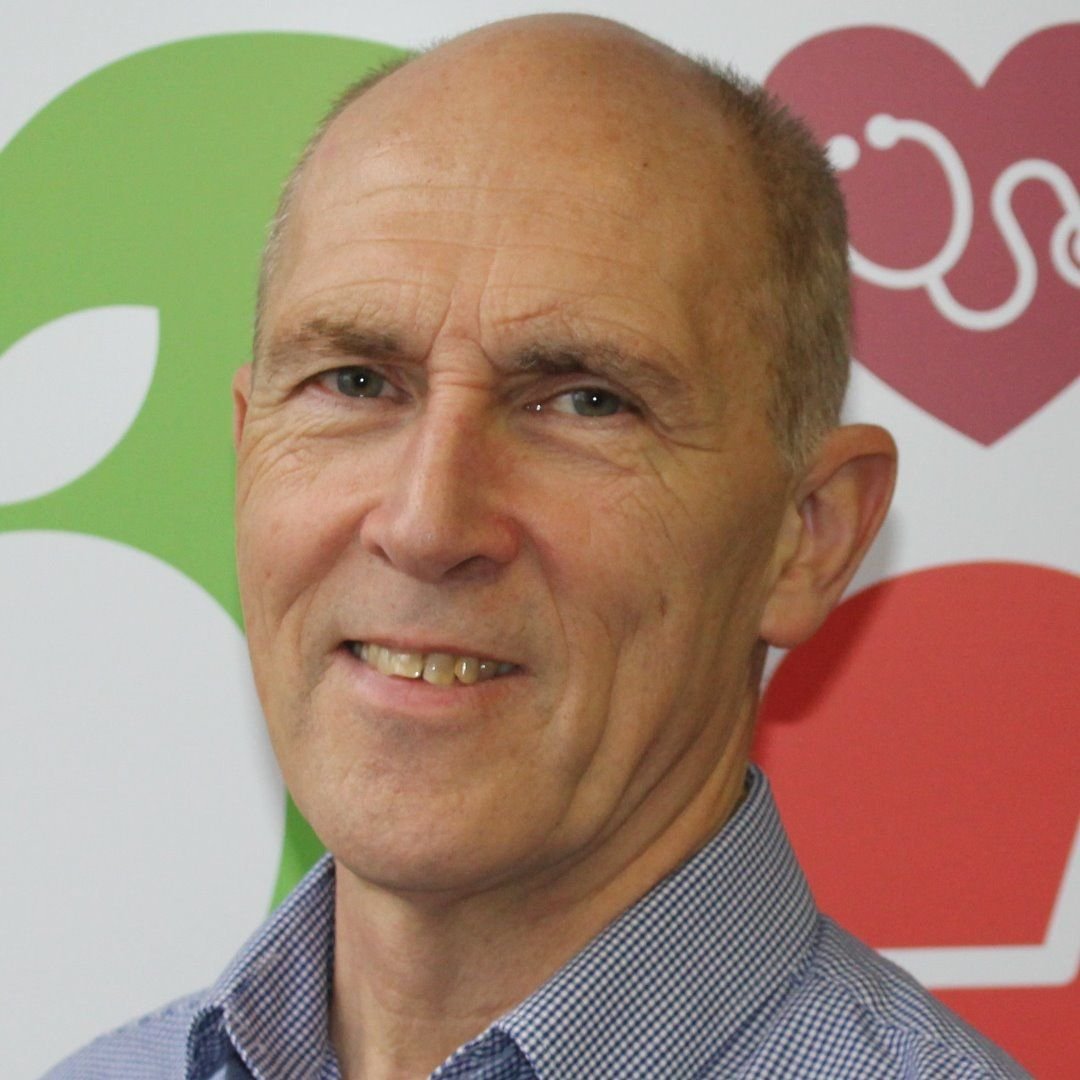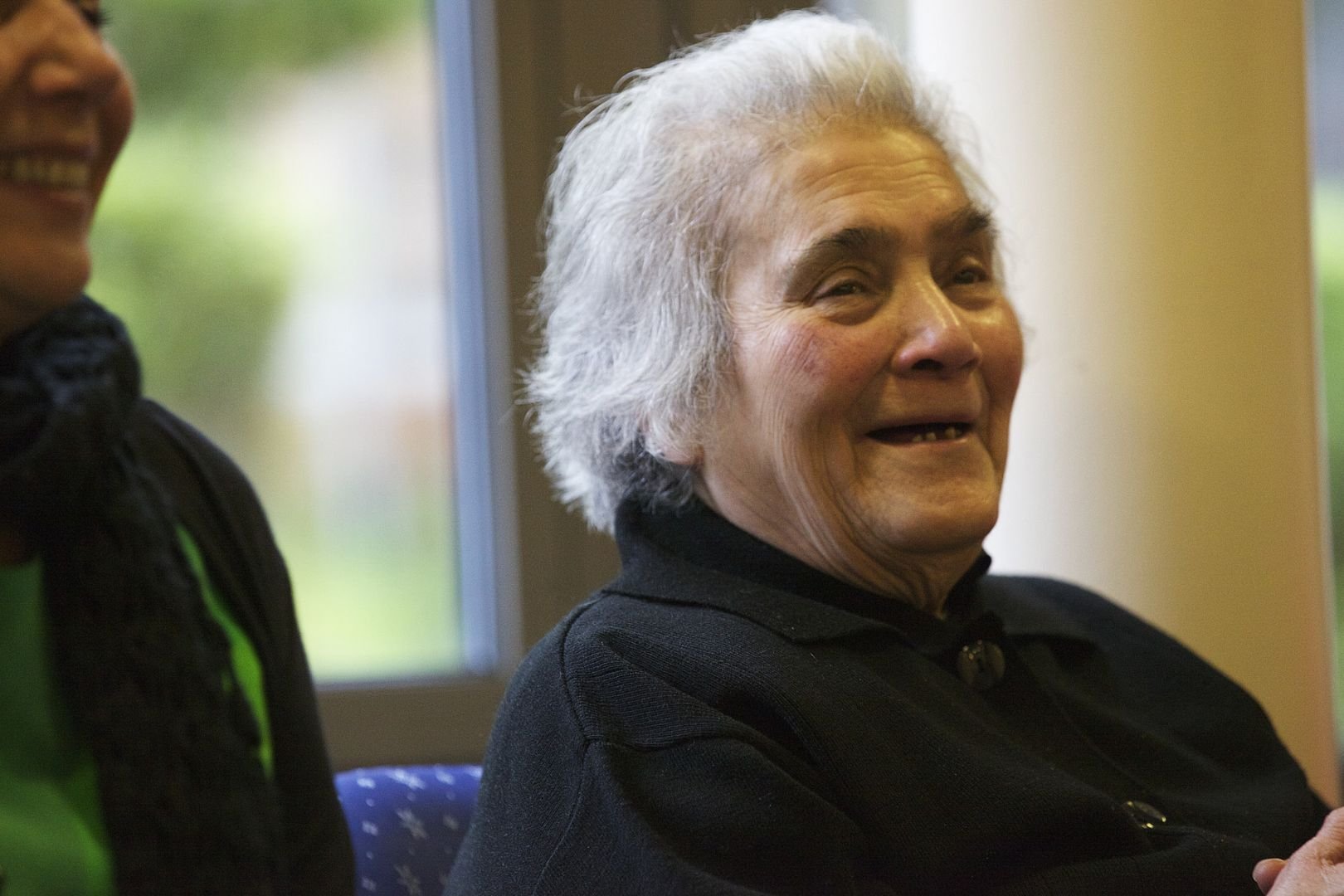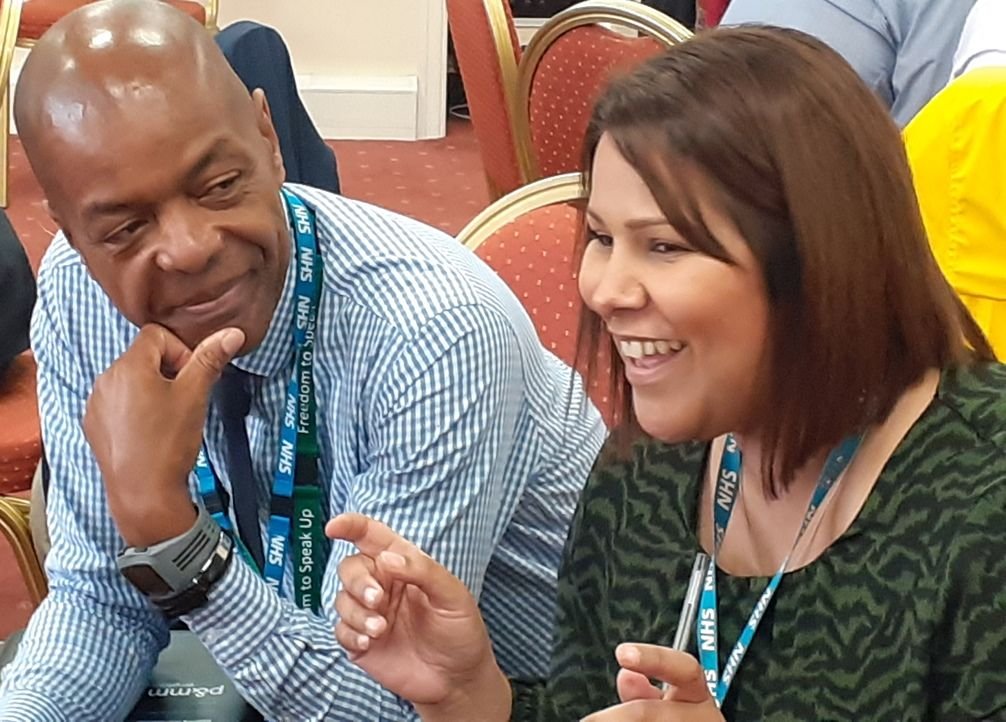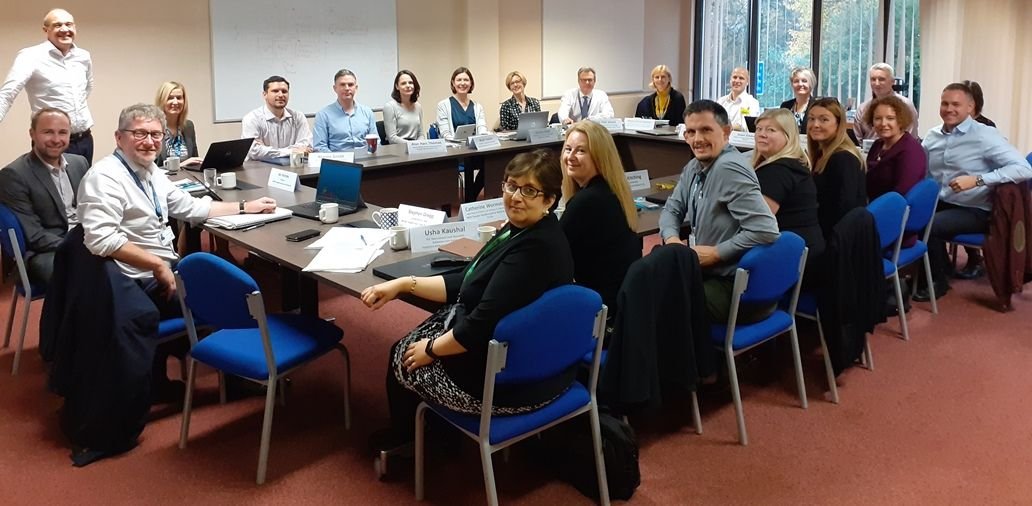Posted on: 8 November 2019
This week’s leadership message comes from Stephen Hardy. Stephen is a patient and public involvement lay member for Wakefield Clinical Commissioning Group. He is also one of two lay members for West Yorkshire and Harrogate Joint Committee of the Clinical Commissioning Groups.
 Food for thought?
Food for thought?
Hello, my name is Stephen
Our health and social care system stands at a crossroads, struggling to cope with spiralling service demands and colossal budget pressures yet shackled to redundant ways of working. Our strategic partnerships are an attempt to skirt the boundaries and foster collaboration and consensus. In time, hopefully, the legislative framework will evolve to support their work and give them a more transparent national direction.
Our West Yorkshire and Harrogate structures, including the Partnership Board and the Joint Committee of the nine Clinical Commissioning Groups, are commendably leading the way in terms of bringing people together to develop a distinct shared vision about what good might look like. I'm pleased to say that they're also forging templates for good corporate governance by embracing lay scrutiny and involvement. They rightly recognise that patients and citizens must be engaged alongside clinicians and others in shaping services if we're to maintain an accountable healthcare system responsive to people's needs and aspirations.
 Around our increasingly complex and multi-layered decision-making I fear we're in danger of disenfranchising ordinary people from making meaningful contributions elsewhere. They don't understand where they fit in. In this context, people can feel they don't really help shape the landscape; they're dragged in at the last minute to populate and legitimise it. This is where we continually need to improve.
Around our increasingly complex and multi-layered decision-making I fear we're in danger of disenfranchising ordinary people from making meaningful contributions elsewhere. They don't understand where they fit in. In this context, people can feel they don't really help shape the landscape; they're dragged in at the last minute to populate and legitimise it. This is where we continually need to improve.
Constructive public participation can't be frustrated by the pace of change or sacrificed on the alter of streamlined administration. We all need to take time to think about how we can still harness the enthusiasm in our communities and tap into that practical knowledge it brings. Without that objective challenge our decision-making will be poorer.
We must also demonstrate a much greater commitment to trawling our communities for 'real voices.' Around three million people currently volunteer in health and social care, some in civic roles on clinical commissioning groups and trust boards, others as health champions and patient advocates and yet the vast majority of 'influencers' are predominantly white middle class men and women. The NHS Confederation maintains that the number of BAME appointments to NHS trusts actually fell in the eight years to 2019.
 I would be the first to admit that it's not always easy to interest people other than the 'usual suspects' but there is a real practical and political danger in leaving people behind. Improving grass roots engagement in this environment will be hard but we need to convince lay people that they have a vital contribution to make, not as passive recipients but as discerning and equal partners. I for one am committed to making this happening, alongside the Partnership who has clearly set out their intention to do so and my role as well as yours is ensuring this happens.
I would be the first to admit that it's not always easy to interest people other than the 'usual suspects' but there is a real practical and political danger in leaving people behind. Improving grass roots engagement in this environment will be hard but we need to convince lay people that they have a vital contribution to make, not as passive recipients but as discerning and equal partners. I for one am committed to making this happening, alongside the Partnership who has clearly set out their intention to do so and my role as well as yours is ensuring this happens.
Have a good weekend,
Stephen
What else has been happening this week?
Shadow System Leadership Executive Board

We have recently launched the second cohort of ‘a Shadow System Leadership Executive Board’ for our Partnership. The programme builds on the successful work of the Shadow Board Programme last year. It is all about developing our system leaders of the future; increasing the sphere of influence and understanding of the Partnership and adding value and challenge to the topic of conversation discussed by the System Leadership Executive Group. The Shadow Board is chaired by Dr Matt Walsh, Chief Officer for Calderdale Clinical Commissioning Group and CEO Lead for Improving Planned Care. The Board reviewed the papers ahead of the System Leadership Executive Group meeting on Tuesday.
Working with health and care champions
The learning disabilities health and care champions work is well underway. Work to date includes attendance at the Partnership Board in September. You can view this here. We also showcased the work we are doing on an NHS England webinar to colleagues across the country. A film about the work we are doing and why it’s important that we involve people with learning disabilities can be viewed here. We are currently in the process of recruiting health and care champions to work on prevention and early diagnosis, planned care and cancer. These themes are in line with what people with learning disabilities and our partners have said are important to them. Professor Sean Duffy and Julie Honeybell from the Cancer Alliance Team met with people in Bradford last week to talk about their experience of cancer screening and early diagnosis. The website is currently being updated to explain more about this important work.
West Yorkshire and Harrogate Clinical Forum
The Clinical Forum met on Tuesday. The meeting is chaired by Dr Andy Withers. It includes medical directors, GPs, pharmacists, allied health professionals and lead nurses.
The Medicines Optimisation in Care Homes programme (MOCH) was discussed by members. This is a two year plan which began in September 2018. It is pharmacist and technician led and is funded by NHS England to provide patient centred medication reviews; with a view to further improve care, reduce waste and train care home staff for the administration of medication. Between September 2018 and July 2019:
- 50 Care Homes have been visited by a pharmacist
- 457 Care Home Residents have been reviewed by a pharmacist
- 49 care homes have been visited by a pharmacy technician.
The programme has had many successes so far. Feedback from care homes and GP practice staff has been overwhelmingly positive. Forum members also heard from Rachael Loftus, Head of Regional Health Partnerships on the Industrial Strategy (see below for more information).
Members also received an update from the System Oversight and Assurance Group. This group takes an overview of progress with our shared priority programmes, with the aim of agreeing collective action to help tackle shared challenges. The discussion on the 22 October focused on the Partnership’s strategy and performance. We received feedback on our draft Five Year Plan including the 10 priority ambitions that would provide focus for the whole Partnership. There is good alignment between our plan and the NHS Long Term Plan. However, the Long Term Plan is a framework not a blueprint, and it is only partial – the integration between health and care is vital and we still await national policy developments on social care. Our plan is tailored to wider local needs and priorities. It will articulate our collective ambitions for the people of West Yorkshire and Harrogate and it will remain true to our model of distributed leadership, subsidiarity and democratic accountability. We continue to focus on collaboration to improve outcomes locally – working better together at every level and putting the person at the centre of all we do.
Joint Committee of Clinical Commissioning Groups
The Joint Committee met in public on Tuesday, chaired by Marie Burnham, our independent lay chair. The Committee is made up of the nine West Yorkshire and Harrogate Clinical Commissioning Groups (CCGs). It has delegated powers from the CCGs to make decisions on specific work programmes. You can read the papers and find out more here.
Knee policies
Dr James Thomas, clinical chair for NHS Airedale, Wharfedale and Craven CCG and Clinical Lead for our Improving Planned Care Programme presented West Yorkshire and Harrogate policies for knee replacement and key-hole surgery.
Knee replacement surgery is a routine operation that involves replacing a damaged, worn or diseased knee with an artificial joint. Knee replacement surgery is usually necessary when the knee joint is worn or damaged to the extent that mobility is reduced and the person experiences pain even while resting. The most common reason for knee replacement surgery is osteoarthritis.
Key-hole surgery is a procedure for inspecting and treating problems arising in the knee joint such as inflammation or an injury. It can include repair or removal of any damaged tissue or cartilage. It has been used extensively in the past to diagnose knee problems but this is no longer appropriate due to the invasive nature of the procedure and the increasing access to less invasive diagnostic methods such as magnetic resonance imaging (MRI). The intervention is used across the age ranges
Both policies require that options include increasing physical activity; taking anti-inflammatory drugs and using a walking aid are tried, and have shown no benefit before referral for orthopaedic assessment. Good communications between the clinician and the person considering knee surgery is extremely important, not just to go over the potential benefits of having surgery but to also understand the associated risks. In adopting a standardised approach we are addressing the variation in care reported by people across West Yorkshire and Harrogate known as the ‘postcode lottery’ thereby ensuring that people in different areas have the same access to health care services and also report a similar experience of care.
The Joint Committee agreed to adopt the knee policies on behalf of the nine West Yorkshire and Harrogate Clinical Commissioning Groups. You can find out more at: ‘A single approach to knee surgery for West Yorkshire and Harrogate’.
Hydroxychloroquine and chloroquine monitoring
James also presented a West Yorkshire and Harrogate pathway and policy for monitoring the side effects of hydroxychloroquine and chloroquine – drugs which are used to treat rheumatoid arthritis, skin conditions and other conditions that involve inflammation. Some people, who take hydroxychloroquine or chloroquine for more than five years, or in high doses, are at increased risk of damage to their retina. There are currently no hydroxychloroquine retinopathy monitoring services commissioned in West Yorkshire and Harrogate.
The Joint Committee agreed to adopt the Hydroxychloroquine and Chloroquine Retinopathy Monitoring Pathway and Policy on behalf of the nine West Yorkshire and Harrogate Clinical Commissioning Groups. The Improving Planned Care Programme is working with its partner organisations across eye care services to consider the various options for delivering this service following the implementation of the new pathway and policy. You can find out more at:
Monitoring people who take hydroxychloroquine or chloroquine to help prevent avoidable sight loss.
Joint Committee governance
The Joint Committee considered a range of proposals to further strengthen working across the clinical commissioning groups. These included developing the Committee’s work plan and its approach to monitoring implementation. The Committee supported further work to develop the proposals, including further discussion within each clinical commissioning group. The proposals will be brought back to the Joint Committee development session in December.
System Leadership Executive Group
The Executive Group met on Tuesday. This includes leaders from all partner sectors, including councils, hospitals, clinical commissioning groups, Healthwatch and community organisations. It is chaired by Rob Webster, our Partnership CEO Lead.
Ian Holmes, our Partnership Director, presented a paper on the national ‘Ageing Well’ programme. This new programme of work has been created to support the implementation of the NHS Long Term Plan ambitions. In line with a number of other national priority areas, a programme funding pot will be available. There are four parts to the national programme: urgent community response; improve responsiveness of community health crisis services; services within two hour of referral where clinically appropriate; and re-ablement care (support for people returning home to help them regain their independence) within two days of referral for people who need it.
These ambitions need joined up care across providers of community health, primary care networks, and the voluntary and social care sector. The work also relies on population health management support. The work in relation to these priorities will be led at place level (Bradford district and Craven; Calderdale, Harrogate, Kirklees, Leeds and Wakefield) supported by West Yorkshire and Harrogate programmes.
Leaders also heard about the West Yorkshire and Harrogate dementia pilot site, one of three funded by NHS England. Their focus is on piloting new approaches, particularly in care homes, to reduce non-essential unplanned hospital admissions for people with dementia and shortening their length of stay unless necessary. The West Yorkshire and Harrogate national dementia pilot launched at the end of September 2018 following a series of workshops with stakeholders from across health, social care and third sector organisations. Leaders agreed that this specialist area of work would become a new specific area in the Mental Health, Learning Disabilities and Autism Programme.
Developing our ‘Five Year Plan’ was also on the agenda. A draft was published with Partnership Board papers on 27 August and we continue to refine the plan. We are working towards a discussion on 3 December at Partnership Board for potential sign-off of the plan.
A shorter summary will sit alongside the detailed plan, setting out what makes us unique. Alternative formats will be produced (animated film, easy read, audio, BSL). Our draft plan has been shared with all partners and stakeholders, including Health and Wellbeing Boards and the Area Partnership Group (unions). Thank you to everyone for their comments.
Rachael Loftus, Head of Regional Health Partnerships outlined the opportunities to deliver improved health and care for the region through the development of the Local Industrial Strategy; and the opportunities to deliver on shared priorities between our Five Year Plan and the Leeds City Regional Local Industrial Strategy.
Leaders discussed the importance of taking full advantage of global opportunities with a focus on improving people’s lives and increasing our area’s overall productivity. Rachael covered the opportunities to deliver improved health and care for the region through the development of the Local Industrial Strategy and the potential to deliver on shared priorities for everyone living across West Yorkshire and Harrogate. Future conversations include a presentation to the Partnership Board on the 3 December.
Mental health, Learning Disabilities and Autism Collaborative Board
The Programme Board met on 18 October. Chaired by Sara Munro, CEO Lead for the Collaborative Board and CEO for Leeds and York Partnership NHS Foundation Trust, the programme is made up of colleagues from the NHS, council and community sector. There was a series of updates including the plans across West Yorkshire and Harrogate to meet the Mental Health Investment Standard and to conduct further detailed work on the NHS Long Term Plan trajectories. There was also a discussion on the core performance relating to Improving Access to Psychological Therapies (IAPT); children and young people access and recruitment challenges.
Consideration is being given around a potential targeted suicide prevention campaign and the Board were supportive of the initial proposal. The progress of the acute care and urgent and emergency care work streams were covered with the view they would work together under a single leadership team.
Non-Executive Directors (NEDs) and Governors from our NHS mental health providers came together to hear about the overall work of the West Yorkshire and Harrogate Health and Care Partnership and its role in mental health, learning disability and autism on the 22 October. They received updates from those leading some of the significant transformation work that is being delivered by the provider collaborative, including the assessment treatment units for people with learning disabilities and children, forensic services and young people mental health care. All of which is reflected in our draft Mental Health, Learning Disability and Autism Collaborative Strategy, due to be finalised in November. NEDs and Governors spent some focused time considering what they have read in the strategy document, provided feedback and considered the role of co-production in communication and engagement alongside the expertise they bring.
Working together as part of the West Yorkshire and Harrogate Health and Care Partnership we want to prevent people with learning disabilities being sent to assessment and treatment units when they don’t need to be there. If people do need to be then they must stay in one that gives them the care and support they need by a consistent workforce and in a good environment / building. If and when somebody does need an admission for specialist hospital care (such as assessment and treatment) colleagues will work to ensure that specialist staff are available and that people are not in the units any longer than they need to be. We will keep you updated as the work develops.
Over the next 18 months, current providers of forensic services across West Yorkshire (including South West Yorkshire Partnership NHS Foundation Trust, Bradford District Care NHS Foundation Trust, Leeds and York Partnership NHS Foundation Trust, Cygnet Health Care and In Mind Healthcare Group) will work together as collaborative engaging with wider organisations, people who access care and their family/carers to enhance adult secure provision across West Yorkshire, with the aim of reducing length of stay and further developing support within the community.
South Korean Ministry of Health and Social Welfare visit
The South Korean Ministry of Health and Social Welfare visited Wakefield Connecting Care+ and West Yorkshire and Harrogate Health and Care Partnership on Wednesday afternoon. It included a round table discussion with some of our Partnership programme directors after the visit to Wakefield Connecting Care+. They were keen to find out more about how they can bring health and social care services into more people’s homes and communities in their country. Questions raised were around the Health and Care Act (2014), Better Care Funds, roles/responsibilities of partners as well as service delivery, information systems, joined up health and social care.
West Yorkshire and Harrogate Healthy Hearts
 New hypertensions results have just been released since the launch in April of phase one of the West Yorkshire and Harrogate Healthy Hearts project. Phase one focused on hypertension management. The partnership project has seen more than 4,500 people been added to the hypertension register and almost 3,500 more patients have had their blood pressure controlled to 140/90 or better. Because of this, over the next five years, an estimated 28 people will avoid an early death, 52 people will not have a stroke and 35 people will have been prevented from having a heart attack. This achievement is testament to the commitment and hard work of practices across our area to help reduce the impact of CVD.
New hypertensions results have just been released since the launch in April of phase one of the West Yorkshire and Harrogate Healthy Hearts project. Phase one focused on hypertension management. The partnership project has seen more than 4,500 people been added to the hypertension register and almost 3,500 more patients have had their blood pressure controlled to 140/90 or better. Because of this, over the next five years, an estimated 28 people will avoid an early death, 52 people will not have a stroke and 35 people will have been prevented from having a heart attack. This achievement is testament to the commitment and hard work of practices across our area to help reduce the impact of CVD.
The West Yorkshire and Harrogate Healthy Hearts team continues to attend GPs protected time events across the area to further engage and provide more information about the resources available to support their work to tackle CVD including clinical searches, treatment guidance and an implementation resource. Resources are available online or by emailing your local NHS clinical commissioning group.
Phase two of the project on cholesterol management has been recently launched. A number of resources have been developed to support practices including:
- Cholesterol treatment guidance and supporting information
- Statin intolerance guidance
- Two-page summary of the treatment guidance and clinical searches
- Implementation resource for the optimisation / initiation of statins
What's happening next week?
- Sally Warren from the Kings Fund visits Kirklees and Calderdale on Tuesday. There is also a ‘round table’ discussion with Partnership colleagues.
- Local place based planners meet on Tuesday (Bradford District and Craven; Calderdale, Harrogate, Kirklees, Leeds and Wakefield).
- Programme directors from across the Partnership meet on Thursday.
- Local Maternity System Programme meets on Friday.

